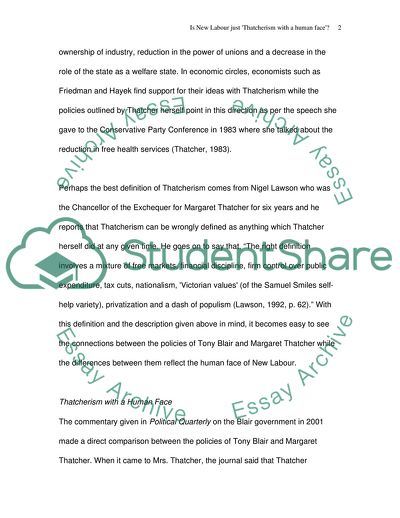Cite this document
(Thatcherism With a Human Face Coursework Example | Topics and Well Written Essays - 1500 words, n.d.)
Thatcherism With a Human Face Coursework Example | Topics and Well Written Essays - 1500 words. https://studentshare.org/history/1706309-is-new-labour-just-thatcherism-with-a-human-face
Thatcherism With a Human Face Coursework Example | Topics and Well Written Essays - 1500 words. https://studentshare.org/history/1706309-is-new-labour-just-thatcherism-with-a-human-face
(Thatcherism With a Human Face Coursework Example | Topics and Well Written Essays - 1500 Words)
Thatcherism With a Human Face Coursework Example | Topics and Well Written Essays - 1500 Words. https://studentshare.org/history/1706309-is-new-labour-just-thatcherism-with-a-human-face.
Thatcherism With a Human Face Coursework Example | Topics and Well Written Essays - 1500 Words. https://studentshare.org/history/1706309-is-new-labour-just-thatcherism-with-a-human-face.
“Thatcherism With a Human Face Coursework Example | Topics and Well Written Essays - 1500 Words”. https://studentshare.org/history/1706309-is-new-labour-just-thatcherism-with-a-human-face.


